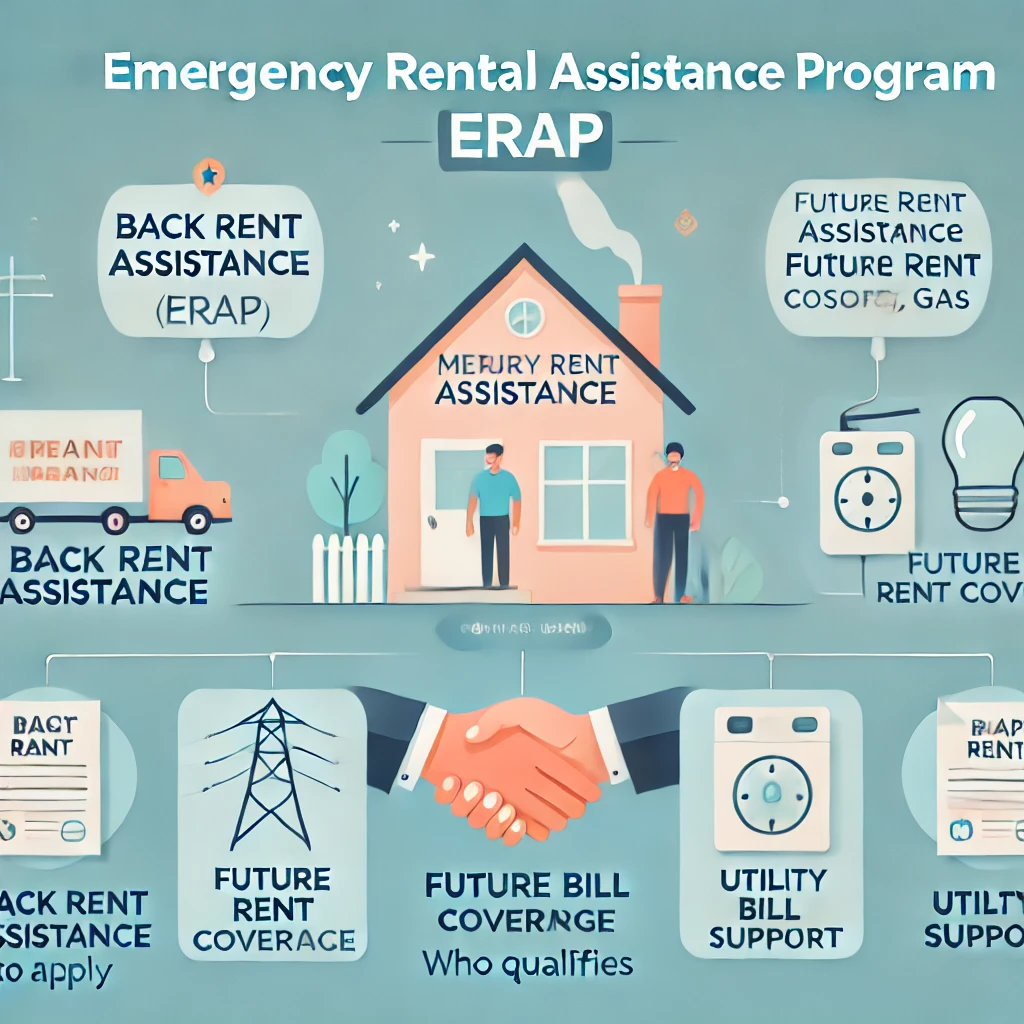What is the Emergency Rental Assistance Program (ERAP), and How Can It Help You?
Life happens, and sometimes paying rent or utility bills can feel impossible. The Emergency Rental Assistance Program (ERAP) is here to help people who are struggling to stay in their homes. Whether you’re behind on rent, worried about your next payment, or trying to avoid utility shutoffs, ERAP can step in and provide the support you need.
This program was created during the COVID-19 pandemic to help families stay housed during tough times. While the world has started to recover, many people are still feeling the financial strain. ERAP is here for those moments when you just need a little help to get back on your feet.
What Can ERAP Cover?
The program is designed to address the biggest concerns renters face:
- Back Rent: ERAP can pay what you owe directly to your landlord, helping you avoid eviction.
- Future Rent: If you’re worried about next month’s rent, some programs offer payments to cover that too.
- Utilities: Whether it’s your electricity, water, or gas bills, ERAP can help keep your services running. Some programs even cover internet bills.
- Other Housing Costs: Got hit with late fees? Need to move because you were already evicted? ERAP can sometimes help with these costs too.

Who Can Apply?
You might qualify for ERAP if:
- You’re Having Money Troubles: This could mean you lost your job, your hours got cut, or you’ve faced unexpected costs like medical bills.
- You’re Behind on Rent or Utilities: If you’ve received an eviction notice or overdue bill, that’s a sign you may qualify.
- Your Income is Low: Most programs are for people making less than 80% of the median income for their area (don’t worry—your local program can help you figure this out).
How to Apply
Applying for ERAP isn’t hard, but it helps to be prepared:
- Find Your Local Program: ERAP is run by states, cities, and counties. Search online or contact your local housing authority to locate the program near you.
- Gather Your Paperwork: You’ll usually need proof of income, a copy of your lease, and overdue bills. If you’ve been given an eviction notice, have that ready too.
- Submit Your Application: Most places let you apply online, but you can also ask about mail-in or in-person options.
Why ERAP is Important
ERAP isn’t just about paying bills—it’s about keeping people in their homes. For renters, it means avoiding the stress of eviction and staying connected to essential services like water and electricity. For landlords, it provides much-needed payments for unpaid rent, keeping property owners afloat too.
Things to Keep in Mind
While ERAP has helped millions of families, there can be some challenges:
- Delays: Sometimes, it can take a while for applications to be processed.
- Different Rules: Each area runs its own program, so the process might vary depending on where you live.
If you’re unsure about anything, don’t be afraid to ask questions. Most ERAP programs have staff ready to guide you.
Don’t Wait—Get the Help You Need
If you’re worried about rent or utility bills, ERAP is here for you. Start by finding your local program and applying as soon as possible. The process is straightforward, and the peace of mind you’ll gain is worth it.
No one should have to face the stress of losing their home. ERAP was created to protect people like you and give you the support you need to stay safe and secure. Don’t wait—reach out today.


Comments are closed, but trackbacks and pingbacks are open.